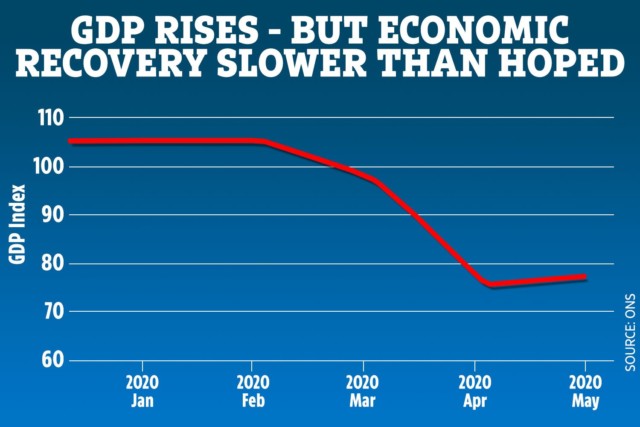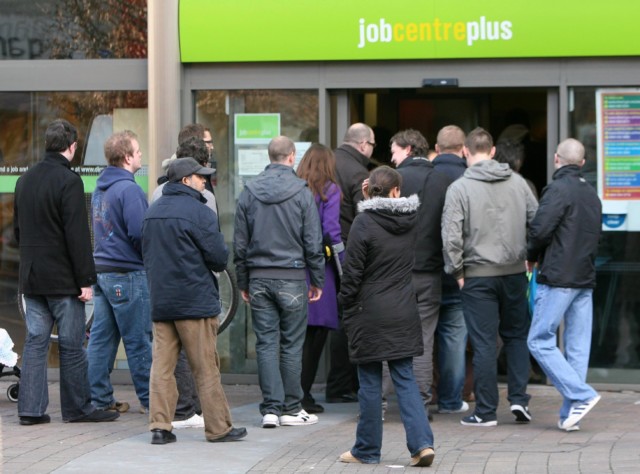THE UK is facing a “K-shaped economic recovery between the “haves and have nots”.
With the coronavirus crisis continuing to hit the nation’s finances, experts have now warned the pandemic will widen the gap between the richest and poorest.
There are fears the employed will continue to earn more, while those without jobs will only face more financial hardship.
Experts are warning that once the furlough scheme ends, blue-collar workers and small business owners likely to be hit hardest.
However, white-collar employees who work at home are considered more safe from redundancies, with many able to reduce their spend and save money during lockdown.
Speaking to The Daily Telegraph, the UK chief economist at Capital Economics Paul Dales warned a K-shape recovery was already visible.
He said: “The upward leg is the ‘haves’ who have kept their jobs and the downward leg represents the ‘have nots” who have lost theirs.
“I can’t quite think of any recession which has had such a big difference on people’s incomes.
“Some people are sitting there with piles of cash in the bank and others will be wondering how they are going to buy food. The aggregate picture disguises a massive difference.”
Office for Budget Responsibility (OBR) this month predicted that unemployment is set to hit 12 per cent this year as the furlough scheme winds down.
This would affect 3million people, up from 1.3million in 2019.
Employees face the first wave of redundancies ahead of changes to the Coronavirus Jobs Retention Scheme (CJRS) in August, which sees employers chip in to pay for National Insurance and pension contributions for furloughed staff.
From September, the government’s contribution will fall to 70 per cent of wages up to a cap of £2,187.50 a month.
The warnings come just weeks after economics Professor Peter Atwater argued that the pandemic was only an “inconvenience” for the “wealthy and those able to work from home.”
He explained: “Service workers have been laid off en masse, while many essential workers have had little choice but to work even as their employers have awkwardly and inconsistently adapted workplaces to a pandemic environment.
“Put simply, the haves are largely back to where they were before the outbreak, while, despite unprecedented fiscal and monetary policy action, the have-nots have even less.”
The UK economy grew by 1.8 per cent in May as coronavirus lockdown restrictions were eased.

But GDP has not yet recovered from record falls in March and April and is still down 24.5 per cent compared to pre-coronavirus levels in February.
The UK economy fell by 5.8 per cent in March as coronavirus lockdown triggered a crash in activity.
GDP then plunged by 20.4 per cent in April – the biggest monthly fall on record.
The economy also returned to growth after lockdown restrictions on the construction sector were lifted on May 11.
But the hopes of a V-shaped recovery have faded given the small increase in GDP.
Did you miss our previous article…
https://www.hellofaread.com/politics/culture-sec-demands-ryanair-help-desperate-brits-get-refunds-reschedule-holidays-as-firm-refuses-to-cancel-flights/








